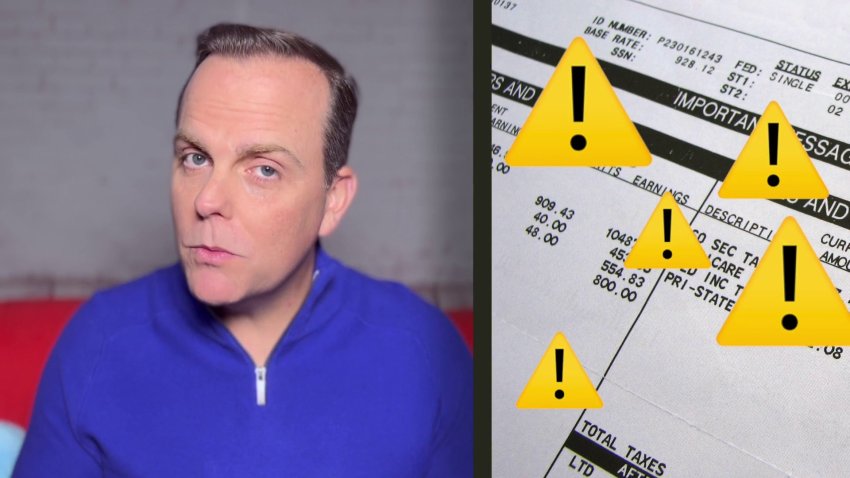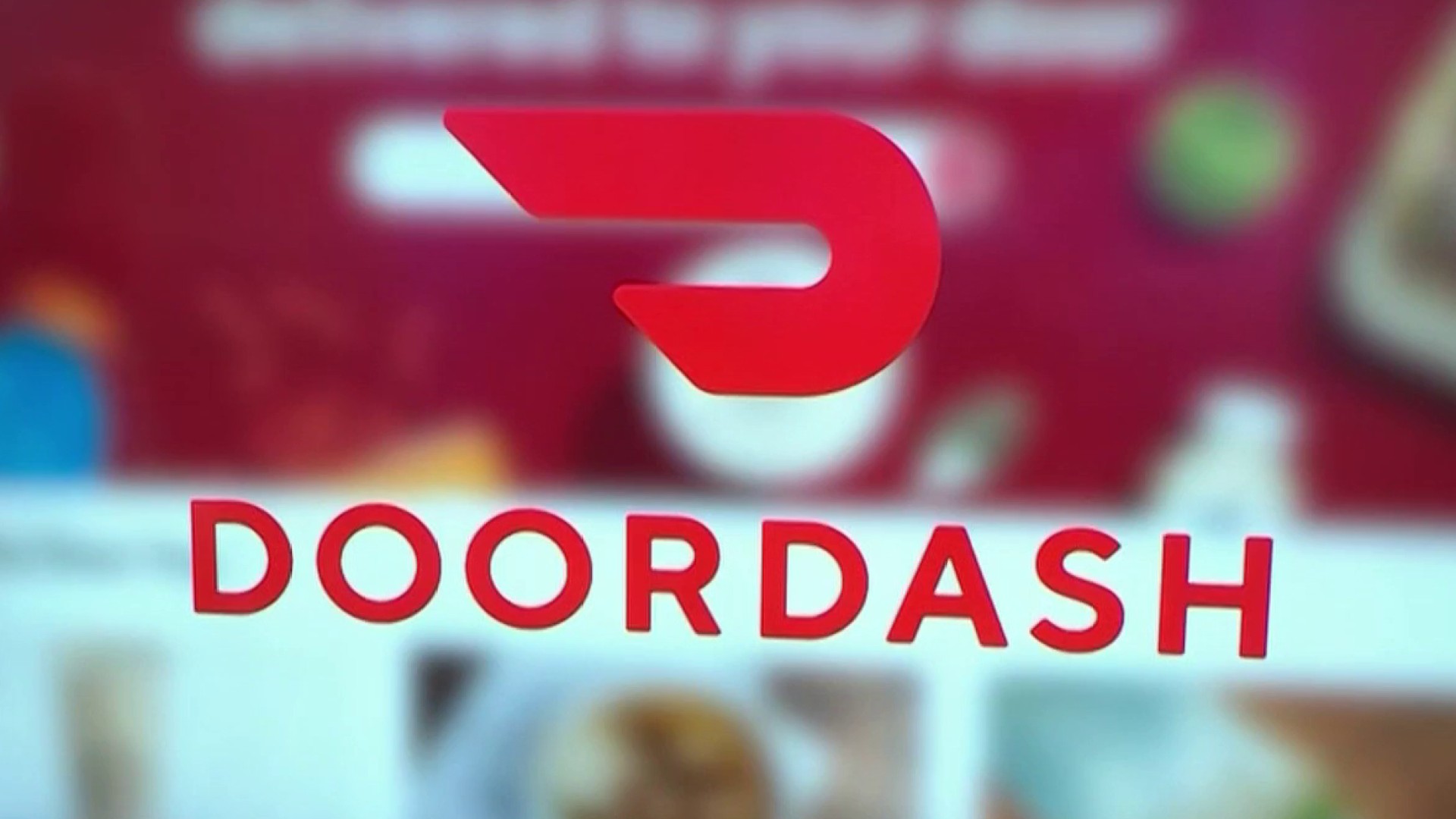Who sees your paystub each payday? Just you, your boss, the IRS, and… a data broker?
That's right. There's a good chance a private data company is getting your paystub, too. What we're about to explain is likely surprising and new to you. But it's probably not at all new to execs in your company. It's profitable and it's growing fast.
Watch NBC Bay Area News free wherever you are
If you look online, we share a ton: who we love, what we eat, where we travel. But most of us draw a line at sharing how much money we make at work.
“Talking about one’s salary is not common practice," said San Francisco etiquette expert Lisa Mizra Grotts. "And never has been.” Grotts says it's proper to keep your paycheck private. “Your salary is between you, your boss, and your family. Period.”
Well, not anymore.
2M+ Companies Handing Over Paystubs
“It’s mind-blowing. And people have no idea,” said Jon Weinberg, Wayne State University law professor. "One of the things I pay attention to is privacy and databases.” Professor Weinberg discussed The Work Number, a company that says it has payroll records on more than half the country's workforce.
So, where does The Work Number get all those paystubs? It says more than two million employers hand over their workers' payroll data every pay period, as a way to outsource the headache of verifying employment and pay.
The credit report company Equifax owns The Work Number. According to The Work Number's website, for $54.95 it will verify a person's employment and provide their pay history. Equifax says the federal Fair Credit Reporting Act dictates who's authorized for access. Equifax says it only lets in people who say they are "verifiers" -- people like landlords, bank officers, H.R. and such who want to check your employment or income. But folks like debt collectors can buy a report, too.
Get a weekly recap of the latest San Francisco Bay Area housing news with the Housing Deconstructed newsletter.
It’s mind-blowing. And people have no idea.
JON WEINBERG, LAW PROFESSOR
Weinberg sees trouble.
“Equifax has not, historically, been real good about data security," he said. "About making sure only the people who are supposed to see the information actually see it.” The FBI said Chinese Intelligence breached Equifax in 2017 and compromised more than 150 million Americans’ credit reports.
We asked Equifax about The Work Number's security. It declined an interview, but sent us a statement saying it "takes data stewardship very seriously.” And, random audits weed out people who might lie to access its trove of half-a-billion pay records.

Security & Privacy Concerns
“I really question the usefulness of having all this data,” said Hayley Tsukayama of the Electronic Frontier Foundation, which advocates for civil liberties, including privacy. Tsukayama has concerns about employers forking over employees' private pay data. She wonders whether workers have any idea what's going on.
“If employers are doing this without employee consent, then I think it shouldn’t be happening,” Tsukayama said.
The Work Number is not alone in offering access to employees’ payroll data.
In San Francisco, there’s the company Truework. Its website tells prospective users -- like loan officers -- that payroll data is “returned in less than one second for over 35 million employees.”
But TrueWork says it’s different from the Work Number. In a statement to NBC Bay Area, Truework said workers have control over who accesses their salary info, “most often in the form of notification emails whenever a third party requests their information.” Truework said some of its payroll partners require that workers provide permission before any of their data is shared. As for debt collectors, Truework said “we do not accept verification requests from debt collectors.”
Truework said its access to the 35 million workers’ payroll info comes from payroll partners and “hundreds of thousands of employers.”
If employers are doing this without employee consent, then I think it shouldn’t be happening.
HAYLEY TSUKAYAMA, PRIVACY ADVOCATE
Why are so many companies forking over employees' paystubs? We asked the country's largest employer, Walmart. Its website shows it uses The Work Number. Walmart did not respond. We also asked three big business lobbying groups -- The U.S. Chamber of Commerce, The National Federation of Independent Business, and The Society for Human Resource Management.
Again, no response.
“That really calls into question why they believed it was a good idea at all," Tsukayama said. "Or if they even thought through it.”
Who Wins?
Equifax says the two million companies that share payroll data win because sharing it saves them time and money outsourcing employment verification. Then, employees win getting quicker loan decisions.
We asked Tsukayama: Is getting a decision a minute, an hour, or a day faster than before worth having all this payroll information stored in one place? “I definitely, as a privacy advocate, I would say no,” Tsukayama replied.
Tsukayama says your boss should let you decide whether to give your paystubs to data brokers. “Employees should be able to make the individual choice,” she said.
So, what about opting yourself out? Equifax and Truework told us they don’t opt people out. But, they recommended that workers contact their company’s HR office, payroll department, or payroll provider. They might opt you out.
You Can Take Action
If you ask your company to let you opt out, Lisa Mizra Grotts has some etiquette for your conversation. “I would be very upfront and frank with my boss," she said, "Say, ‘I really don’t feel comfortable about this. Could you please remove me from the list?’”
You are not powerless here.
Right now, you can see if the data brokers have your payroll data. You can read through it yourself, see who else has accessed it, dispute errors, and even lock down your data with a "freeze." Use the link at the top of The Work Number website that says "My Personal Data." It took us just a few minutes to download a report.
If your employer uses TrueWork, the company’s website offers its own portal to get a copy of your report. Freezing a report -- to prevent others from seeing your payroll info -- requires a phone call or an email, Equifax said.
Bear in mind: if you freeze your pay report then apply for a loan, you might not be approved until you unfreeze it. How long will that take? We asked. Equifax said after you make contact and it verifies your identity, the typical wait to unfreeze is one business day.



